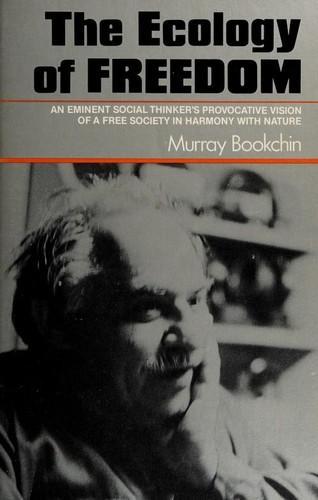nemobis ha recensito The Ecology of Freedom di Murray Bookchin
Review of 'The Ecology of Freedom' on 'Goodreads'
5 stelle
Bookchin attempts to rewrite the history of humanity to prove that hierarchical structures aren't "natural" or "necessary". Paleosociology is inevitably hard and dubious, but Bookchin doesn't pretend to have the truth in his pocket. Every page challenges us to think differently and consider what we could do together as a society.
Bookchin is very aphorism-friendly so it would be easy to extract a myriad slogans. I've wondered about this passage on ecofascism: «To lecture society about its "insatiable" appetites, as our resource-conscious environmentalists are wont to do, is precisely what the modern consumer is not prepared to hear. And to impoverish society with contrived shortage, economic dislocations, and material deprivation is certain to shift the mystification of needs over to a more sinister social ethos, the mystification of scarcity. This ethos–already crystalllized into the "life-boat ethic", "triage", and a new bourgeois imagery of "claw-and-fang" called /survivalism/–marks the first steps towards ecofascism».
I love that he decries false rationalism in a way that's compatible with Popper's view of irrationalism including mysticism and romaticism: «The reconstruction of reason as an interpretation of the world must begin with a review of the modern premises of rationalism–its commitment to insight through opposition» etc. (chapter 11, p. 302). A standard Popper critique of dialectic could fit just as well in place of the next paragraph. Actually when I read this book I had not read "Open Society" yet; now some passages are clearer to me. So I can recommend reading some Popper before this book to get most of it (especially when Plato is mentioned).

